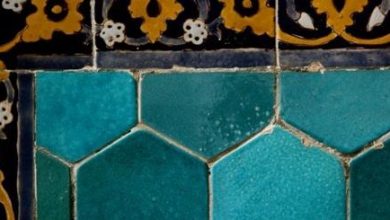BETWEEN ISLAM, CULTURE AND MATERIAL LIFE

The early message of the Qur’an, initially directed to the people of Mekah, asked for the refrain from dunia. Prior to the emigration (hijrah), most Muslims at that time had no dunia left: their houses and possessions had been confiscated by the Quraish, they had no wealth to speak of, and some of them did not even have enough food. Yet they were able to persevere because of the love of the message and were able to migrate from Mekah to Madinah, leaving whatever they had behind. This included their houses, income earning date palms, and wells of water, which was crucial for survival. Their surrender to Allah’s commandments were absolute and their love for dunia had been stripped bare.
Our practice of Islam today
Today we can’t even migrate from our own habits and culture for the sake of Allah. We observe the rituals, including the salah, Qu’ranic recitation and fasting, but our thinking, objectives and goals are corrupted with worldly desires. Our addiction to the material life, including all its bad habits, dictate our behaviour more than Islam does.
Over the years, people have also introduced their own cultural nuances to the deen. Some practices are so enmeshed in tradition that people still adopt them even when they are in glaring defiance of the Sunnah and the Qur’an. Some of these have crept into even the elements of basic worship. We are suspicious about any school of thought other than our own, and assume that all other Muslims are wrong. In reality, it is possible that our own practices are wrong. There are many cultural elements in weddings where the Qur’an and Sunnah are flagrantly breached. What about the way we eat, the celebrations we observe and even the way we are buried? Many of these are in major contravention of Islam, but we are fussing over whether our index finger should be static or moving during the tahiyyat.
As a consequence, we may have the beard and niqab, but not the manner, compassion or mercy befitting of a Muslim. What if we grow a beard to look pious, but have no element of Islamic manner within us? Today, we study Qur’an and tajweed, and attend different Islamic talks. Once we go home, our style of living is totally dunia, from the way we think, talk, dress, eat and drink. Our daily lives are mixed with Christian, Buddhist and Hindu traditions. Islam occupies a small space in our routines, and the rest are dictated by dunia. To compound the problem, the majority of us practice Islam by imitation and do not refer to the Qur’an, Sunnah or even with scholars and learned people on whether we are on the correct understanding.
The Companions lived only for the sake of Allah. The cultural backgrounds of the Arabs then were steeped in perverse traditions and materialism. However, the love of Allah eradicated the practice of anything which was inconsistent with Islam. The message of Islam caused the Companions to rise above their cultures.
Today, our Islam is heavily infused with cultural elements which do not sit comfortably with Islam. If at all, many are in direct conflict with Islamic values. Therefore, are we in a position to be able to obey Allah’s commands willingly?
When these early Muslims were commanded to migrate to Madinah, each of them was worth an entire nation in his strength of faith. Allah knows that a single person can change nations, for He has permitted it to happen in the past. One of the most inspiring stories in the Qur’an is about the Boy and the Kingwhere Allah demonstrated the power of one person to convert his whole community to Islam. The story proves the power of faith over the power of numbers. History will also demonstrate that Islam spread to places such as Malaysia and the Maldives because of the exemplary behaviour of one or two Muslims – not because of an invading armada.
By the conquest of Mekah, the number of Muslims had exceeded 10,000.
After Rasulullah SAW passed away, Islam had not been established beyond the Arabic shores. However, the surviving Companions continued transmitting the message of Islam, travelling far and wide to foreign soil on a one way journey. This is why there are so few Companions buried in Madinah. These travellers were the ones who planted the seeds of Islam across the world, and these seeds germinated to produce the 1.6 billion Muslims today. They spread Islam by adopting the manner of Rasulullah SAW in inviting others, following the strict sequence of instilling iman and love of Allah and His messenger first before imposing any regulations.
Pillars are not enough
Islam is founded on five pillars, and we have whittled those pillars to the size of matchsticks – fragile, inadequate and unable to bear any strain. A pillar is designed to support a building, but most of us just leave our Islam at the pillars and do not bother with the building. Many of our pillars are broken, incomplete, weak and even non-existent. We just focus on the rituals, meaning our relationship with Allah, but ignore the other part of our obligations, which is to work on our relationship with the creation of Allah.
Even today when we try to spread Islam, even to our children, we do it by imposing rules and regulations, and not for the sake of getting to know Allah. We pass on Islamic rituals by force, but not by information. When our children fly the coop, they rebel and stop practicing Islam. Further, they are easy prey for non-Muslims – with their heavily diluted Islamic knowledge, they do not know the merits of Islam enough to defend it. Non-Muslims capitalize on this vulnerability to make them doubt the existence of God and Islam.
When Muslim families emigrate to non-Muslim lands (usually for economic benefit), it is normal that by the second or third generation, there is no Islam left within the family.
All this is due to our own lack of knowledge and faith. We tell our children to believe in God, but we cannot even overcome our worry of receiving our provision for tomorrow (when Allah has already told us that our provision lies with Him and has already been ordained). Today, we are emphasizing the halal and haram without developing the iman first. We worship without understanding how Islam works, how we can work for Islam, and how Islam can work for us. How many of us have gone for umrah and hajj without any inherent understanding of what these rituals are intended to achieve? We travel to Mekah and Madinah with dunia in our hearts and emerge with our hearts still drowning in dunia. We make plentiful du’a before the Ka’bah, come home laden with gifts and shopping, but remain none the wiser about Islam.




